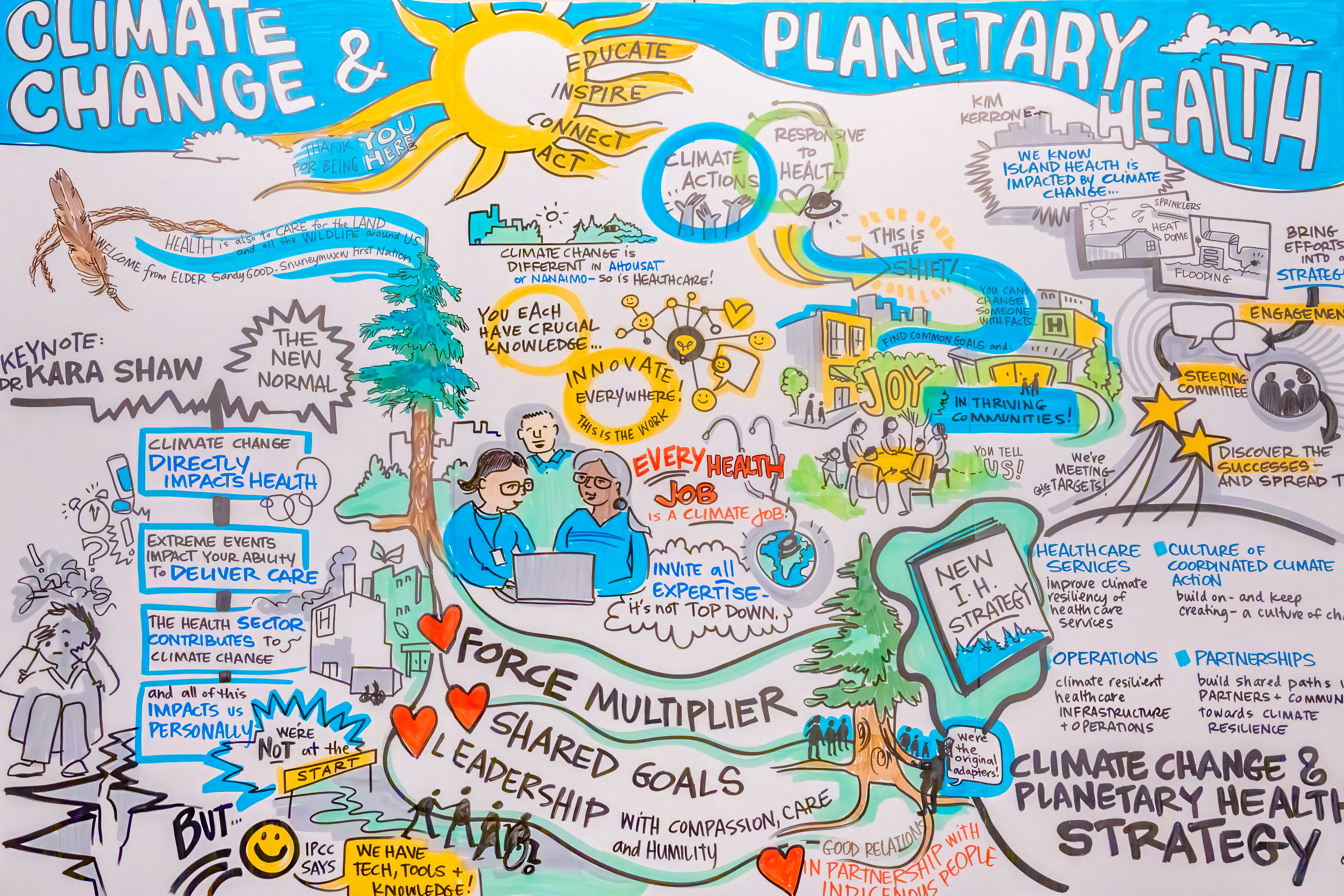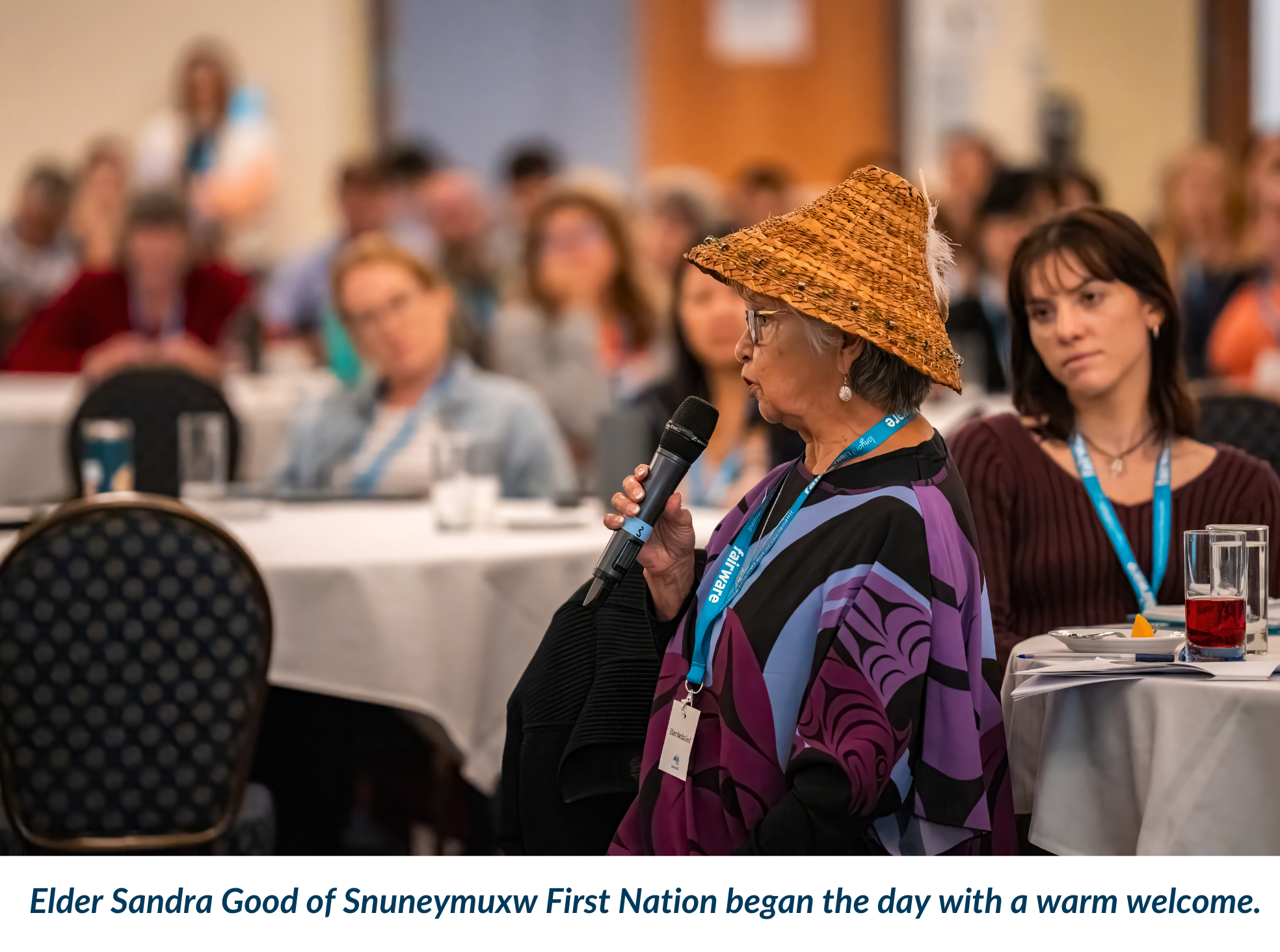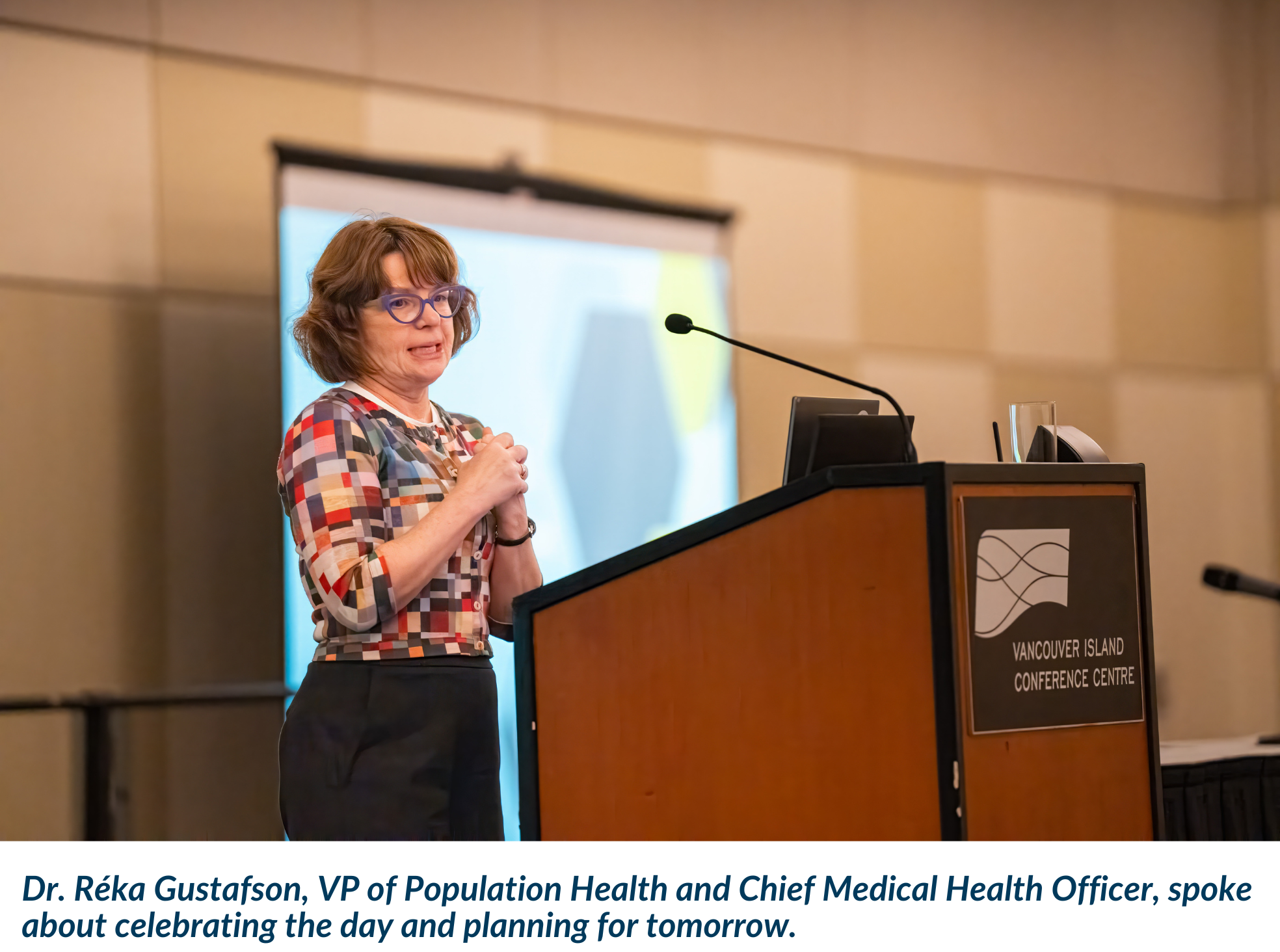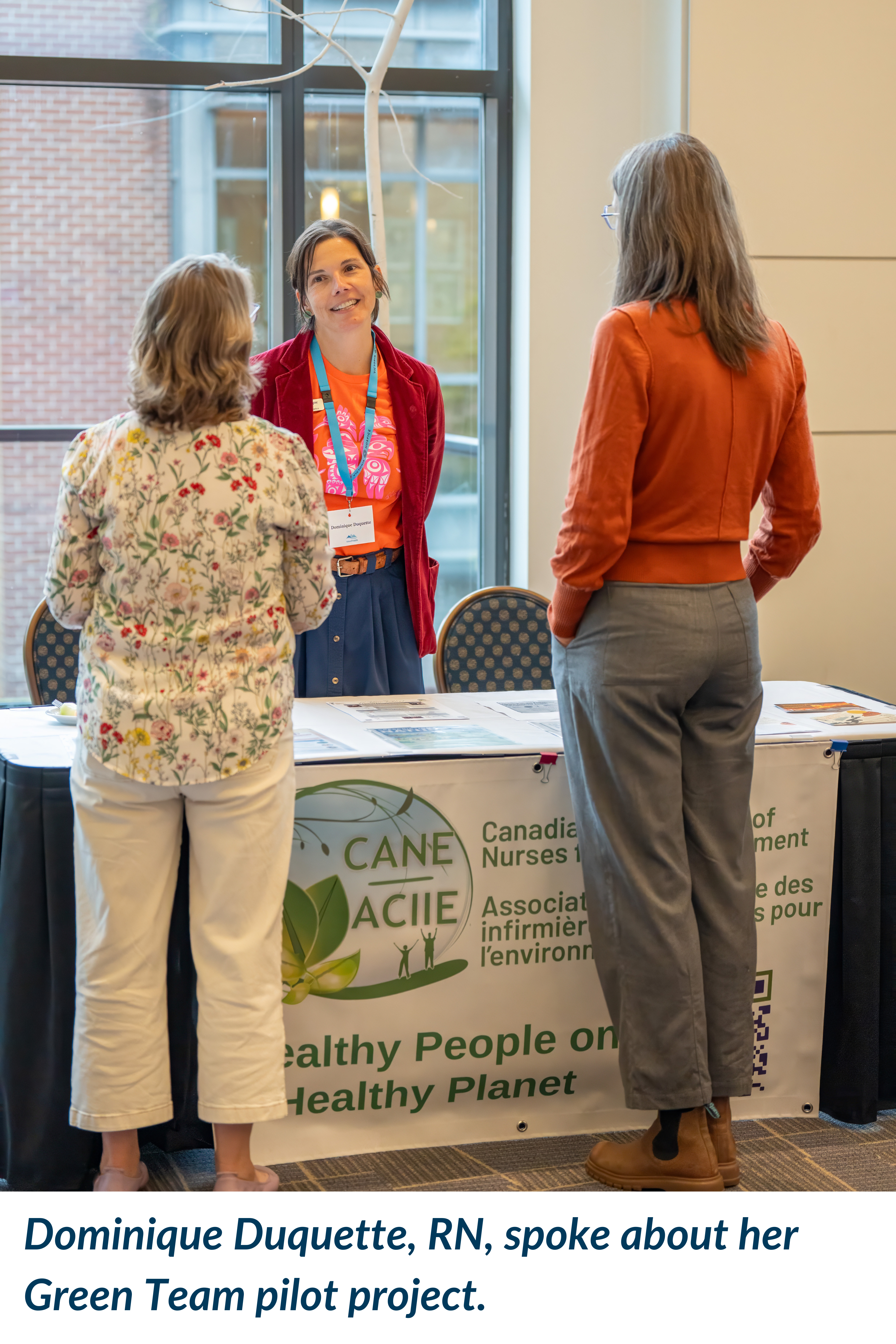

Inspiring artwork created during the conference by artist Sam Bradd.
Fostering connections, building excitement, deepening our collective knowledge: These were some of the key goals for Island Health's first Climate Change & Planetary Health Conference.
This special gathering, held September 26 at Nanaimo's Vancouver Island Conference Centre, brought together more than 200 staff, medical staff and leaders from across the organization to focus on our ambitious climate strategy. It was an encouraging turnout, given that climate work is health-care work in so many ways. Taking action on climate change i s one of Island Health's top priorities, and a key part of our Strategic Framework and Annual Plan.
s one of Island Health's top priorities, and a key part of our Strategic Framework and Annual Plan.
“What inspires me most about today is the bringing together of people from across the Island, across all different areas and different departments," said Kim Kerrone, Vice President of Support Services and Chief Financial Officer. “It just shows the enthusiasm and interest and passion that people have for planetary health and climate change."
The day began with a warm welcome from Elder Sandra Good on behalf of Snuneymuxw First Nation, followed by the keynote speech from Kara Shaw, Academic Director of the University of Victoria's Certificate in Transformative Climate Action program.
Shaw highlighted how climate change is directly impacting people's health and the ability to deliver health care. She also noted how the healthcare sector is a significant contributor to climate change. In the face of such challenges, “aligning our climate action toward improving health—our own, our communities and the natural world upon which we depend—has the potential to be game-changing in a number of ways," said Shaw.
Throughout the day, attendees gained insights into the valuable work already underway and Island Health's direction moving forward. The conference also marked the official launch of our new Climate Change and Planetary Health Strategy, which will guide Island Health's sustainability efforts for years to come.
Attendees learned about the diverse range of initiatives underway across the organization that are making a difference—from major projects such as the low carbon resilience roadmap, to a range of initiatives undertaken by the Environmental Sustainability Program, to grassroots Green Team efforts and much more.
 “We're not talking about concepts or theories, we're actually talking about what we can and are doing today," said Dr. Réka Gustafson, Vice President of Population Health and Chief Medical Health Officer. “And we are launching a strategy that takes our willingness and our knowledge and turns them into collective action—and collective action has impact."
“We're not talking about concepts or theories, we're actually talking about what we can and are doing today," said Dr. Réka Gustafson, Vice President of Population Health and Chief Medical Health Officer. “And we are launching a strategy that takes our willingness and our knowledge and turns them into collective action—and collective action has impact."
Breakout sessions focused on waste and recycling at Island Health, the role of water in health care, and creating and motivating climate-conscious clinical teams. “I think as clinical staff there are so many things we can do as individuals. Often we see this as a big problem that requires big changes, but every little component makes such a difference," said Dr. Adele Harrison, Medical Director of Clinical Improvement and Medical Staff Development. “One less blood test, one less prescription, one less procedure—all of those add together because there are so many of us who work together at Island Health."
“We've got limited resources in the environment and in health care, and we can't keep just adding more, more, more," said Dr. Jessica Otte, a Family Doctor and Alliative Care Physician at NRGH who attended the conference. “Giving patients the best care possible, fitting with their goals and wishes and the best evidence, may mean not doing a test or giving a treatment that causes more harm than good, to the person and the environment. Sometimes less is more."
As the day concluded, participants left feeling empowered and inspired— including Matthew Miller, a sonographer at NRGH's Medical Imaging Department who sits on the site's Joint Occupational Health & Safety (JOHS) committee. “My biggest takeaway is how changes in our environment can have a significant impact on health and safety at our worksites," he said, adding that he plans to discuss some conference learnings at an upcoming JOHS meeting.
“[This conference is] a starting point of a really great conversation. I've been approached by so many people who are really interested and excited about the work that we're doing," said Pierre Iachetti, Island Health's director of Energy, Environment and Climate Change. “It's a launching pad for partnerships and collaborations down the road. And hopefully, if we're lucky, it'll be the first of many conferences to come!"
said Pierre Iachetti, Island Health's director of Energy, Environment and Climate Change. “It's a launching pad for partnerships and collaborations down the road. And hopefully, if we're lucky, it'll be the first of many conferences to come!"
For more on the event, including resources and photos, please visit the Climate Change & Planetary Health Intranet Page. If you are interested in learning more about climate change work at Island Health and how you can get involved, please contact sustainability@islandhealth.ca.
You're also invited to sign up for The Beacon e-newsletter and get Environmental Sustainability Program updates straight to your inbox. Stay current on climate initiatives throughout Island Health, access the latest tools for change-makers and learn about upcoming opportunities to get involved.
Island Health is committed to making a positive contribution to environmental sustainability and supporting community preparedness and resiliency for climate emergencies. We are taking action to reduce our greenhouse gas emissions by 50% from 2010 levels by 2030 and diverting 70% of waste from landfills by 2030.